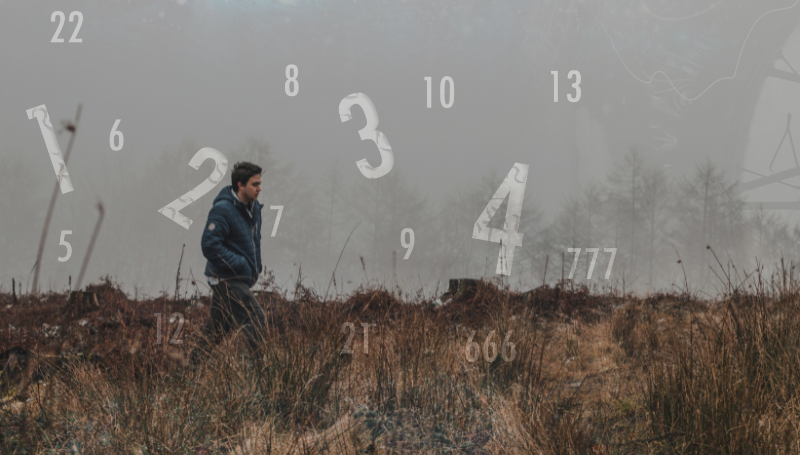Childhood trauma and numerology
(OMTimes) Numerology can unravel the challenges of childhood traumas and teach how to turn them into potential strengths.
How numerology may help you heal childhood trauma
Childhood is a time in a person’s life that generates memories that will shape our personality for the rest of our lives. When we experience trauma in the early years of life, it becomes an open wound, a weak point, an uncomfortable reminder that can afflict us throughout our lives. This point that leaves us so vulnerable can become the source of our strength. Numerology can identify the wounds we carry in our lives, and knowing what they are can be liberating and the catalyst for bringing significant change to our present. Discover all the symbolism in numerology regarding life’s traumas and challenges, seek to understand it, and direct your thoughts and actions towards healing this wound.
Numbers are the highest degree of knowledge. It is knowledge itself.
– Plato
The challenge number
To understand which childhood traumas accompany you, you need to know what your Challenge Number is. You can find out by creating a numerological chart with a professional or calculating it at home. It’s not a difficult calculation; you must pay close attention.
Childhood trauma linked to numerology
House number 1
Those with the challenge positions marked in house number 1 of the numerological chart may have experienced childhood trauma due to an overly protective or repressive father or guardian. This authority figure (usually male) may have caused a wound in your identity that, in adulthood, is expressed as insecurity, fear of taking risks, making wrong decisions, or being different. This trauma makes it difficult to be independent, autonomous, and willing to take on and maintain your personal projects. Detaching yourself from this authority/dependency from your childhood is a great challenge to overcome. It’s not an easy process; you need to find a balance to not act arrogantly, impulsively, passively, and complacently. You need to find equilibrium. You need to learn to rely solely on yourself, dare to dare, and be who you are without needing approval or permission from that authority figure. Engaging in challenging projects where you can innovate and lead is an excellent start.
House number 2
If you have a challenging position in house number 2, you probably experienced situations of love and hate with your mother or another female authority figure during childhood and adolescence. There are two unique possibilities:
You may have been overly attached to this female figure, and/or she may have overprotected you.
She may have neglected you, and your childhood may have been marked by emotional distance from this woman.
As a result, your way of dealing with emotions and expressing feelings may have been affected. Showing love or affection towards any woman can become uncomfortable, always recalling past experiences with heightened sensitivity. Those who go through this type of childhood trauma tend to close themselves off and “shield” their emotions to have greater control over their feelings and themselves to avoid emotional suffering again. You need to reach emotional maturity and learn to express your feelings towards females without barriers, dealing with them more naturally, without fear in your subconscious. The more you can show affection, understanding, love, and diplomacy in your relationships with women, the faster you will feel healed from this trauma of your childhood.
House number 3
If the challenge position is in house number 3 in numerology, it likely means that you felt inferior to a sibling, cousin, or playmate during your childhood. People used to compare the two of you, or you would compare (or both), and you were usually considered inferior: less clever, less beautiful, less intelligent, less sociable, etc. As a result of this feeling of inferiority, you may have developed difficulty expressing yourself and socializing in adulthood. The impulse to demonstrate how you think and your creativity may have been impaired, and these activities become uncomfortable.
To overcome this challenge, you need to regain your self-esteem and self-confidence. Anything involving art, pleasure, and fun comes with a tremendous fear of being criticized or unnoticed due to the trauma of comparison and childhood inferiority. You must overcome this discomfort, focus on yourself, and enjoy expressing yourself. Reclaim your essence, realize that you have value, your ideas can be interesting, and you can be creative and communicative. Practice this, and you will free yourself from this trauma.
House number 4
If the challenge position is in house number 4 of numerology, it can have two important meanings:
You had a childhood and/or adolescence marked by many responsibilities and strict discipline.
You had an excessively protective upbringing, where your parents (or guardians) did everything to make you feel secure.
Regardless of the situation, both descriptions generate similar consequences: you grow up concerned about health, cleanliness, and organization. When you have many obligations in childhood and start working early, or on the contrary, have no obligations and receive everything handed to you, both (surprisingly) create a similar wound or trauma.
Those who experienced these facilitations or difficulties in childhood and adolescence oscillate in adulthood between a meticulously planned routine with no room for mistakes and unexpected events and total chaos of disorganization and lack of self-care. There is no middle ground; either the person is very attached to correct schedules or completely negligent. Either the house is spotless or a complete mess. Either they eat healthily with restrictions or are completely careless about their diet.
Do you identify with any of these situations? Healing this trauma means finding balance, a harmonized measure between work and rest, responsibility and leisure, obligations, and the pleasures of life.
House number 5
If you have the challenge position located in house number 5 of numerology, it means your childhood was marked by one of the following two situations:
You had a childhood marked by sudden or constant changes, such as moving to different cities due to your parents’ work, which brings a series of consequences such as the need to readjust, loss of friendships, etc.
Your childhood was excessively marked by a repetitive routine, where your parents feared losing security and limiting you greatly.
This wound is healed when people avoid fanaticism and disbelief and steer clear of extremes regarding these issues. It is recommended that individuals develop faith (not necessarily linked to religion) and strive to become experts in what they enjoy investigating and learning. It is essential for individuals not to close themselves off from the world because of this trauma but rather learn to share their knowledge and intuition and their deep insights into life and other specific topics.
House number 8
If the challenge position is in house number 8 of numerology, it can signify that:
The child experienced a significant change in the family’s financial and material life due to bankruptcy or job loss of the parents, grandparents, or guardians.
The child experienced authority abuse by the parents or guardians, with one parent displaying tyrannical or violent behavior. At the same time, the other had a more submissive and gentle approach to raising the children.
When one of these situations occurs, the child grows up with trauma regarding dealing with money or material possessions and struggles with practical matters involving finances. This individual feels uncomfortable asserting their power, feels insecure, and has difficulty standing out or taking on a leadership role, as it all reminds them of past fears. There is a love-hate relationship with success, a significant duality concerning wealth versus poverty, and a deep discomfort regarding figures of authority and influence in their lives (such as their boss, for example).
To free oneself from this trauma, it is necessary to make peace with money and finances, to know how to manage ambition and the desire for power, and to express one’s charisma. Energy must be directed towards personal achievements and the realization of dreams. Valuing stability and credibility, enjoying a true sense of prosperity without burden or guilt.
House number 9
If the challenge position is in house number 9 of numerology, then most likely, your childhood was marked by some form of renunciation. For example:
Living with grandparents and being unable to engage in many childhood mischiefs to avoid inconveniencing them.
Having parents who sacrificed a lot for you and didn’t have enough time to spend with you at home.
One of the parents has to give up their individuality to care for you or a sick relative (or something similar).
Your childhood was marked by some form of renunciation, where someone desired to do something but couldn’t because it was truly necessary, resulting in suppressed desires for the family’s sake. This atmosphere of self-denial and renunciation created a trauma within you. It can lead to consequences of excessive selflessness or extreme individualism in adulthood.
These are extreme outcomes: the adult may feel discomfort in taking on leadership roles due to years of humility resulting from renunciation or refuse to help others out of fear of “going down with them.”
You can heal this inner trauma by getting to know yourself and consciously developing your maturity. You can embrace your humanitarian and educational potential by helping and inspiring others, being a great friend to everyone, and opening yourself up to accept, with pleasure, the well-deserved compliments of others. You will also take pleasure in recognizing and praising the progress of others around you, which will heal your trauma.
Attention: If your challenge number is 11 or 22, in this case, you should consider number 2 (11=1+1=2) and number 4 (22=2+2=4).
Source: OMTimes
You may also like:
De essentie van numerologie uitgelegd + hoe je je levenspad nummer kunt vinden
How your numerology birth chart and life path number can help you realize your full potential






